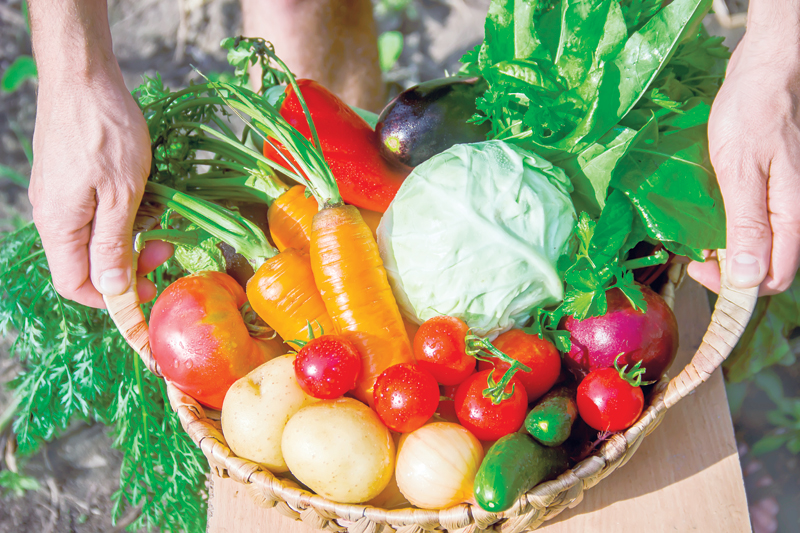

Point of View -
Dr Abdulwahab al Sadoun -
The agri-nutrients industry operates in a changing and ever more complex environment. Against the backdrop of a growing world population, rising sustainability challenges and higher demand for food, agri-nutrients producers are facing immense pressure to rise up to the needs of a changing world and ensure an interrupted supply of vital nutrients to nations across the globe.

A new report by the United Nations estimates that the world’s population will increase by 2 billion people in the next 30 years, from 7.7 billion currently to 9.7 billion in 2050, and reach its peak around the end of the current century, at a level of nearly 11 billion.
The population of sub-Saharan Africa alone is projected to double by 2050, witnessing a 99 per cent increase, and adding further pressure to existing resources. The African continent presents a tremendous opportunity for agri-nutrients producers as the lack of food security, poor land cultivation practices and rampant soil degradation continue to dominate the current agricultural landscape.
Food security remains one of the gravest challenges facing the world today, as demand for food is expected to more than double over the next 30 years. The efficient use of fertilizers will be central to ensuring healthy crops and maintain a sustainable and efficient production. Inorganic fertilizers are currently used to produce more than half of the world’s food, helping to ensure sustainable supply even in places with the most challenging conditions. This is creating immense pressure on global regulatory authorities and shaping a new paradigm for fertilizer producers.
Advancing a new vision
Much like global players, the Arabian Gulf is entering a new era for agri-nutrient production shaped by rapid industry consolidation, technological disruption, the need for higher value-added products and increased collaboration. Building on its availability of feedstock and geographical location, the GCC has cemented its position as a leading producer of fertilizers, shipping its products to over 80 countries worldwide. Today governments in the region are fulfilling a new vision — to transform the GCC into one of the world’s leading production hubs and attract some of the largest food producers to invest in the region. Governments and industry are putting a special focus on initiatives such as vertical farming to boost local food production.
Need for collaboration
Advancing this ambition will require forging new and strategic partnerships with international players, fostering innovation and setting up state-of-the-art manufacturing facilities. The agri-nutrients industry is well placed to acquire a more competitive position by focusing on strategic consolidation and acquisitions to enhance its capabilities and access to key markets.
Now more than ever before the industry needs to collaborate and enhance its capabilities if it wants to attain future growth. However, collaboration alone will not suffice in meeting rising demand for food in a world with rapidly depleting natural resources.
To cater to the needs of an ever more fragmented agricultural sector, companies will need to transform into end-to-end solution providers through strategic integration with value chain partners. Vertical farming, precision farming and nitrogen fixing will revolutionise traditional agriculture and have a dramatic impact on the industry’s profitability.
Focus on specialty fertilizers
To capture new business opportunities and create further value for the regional economy, the industry must diversify its product portfolio by developing more specialty products. As food demand worldwide continues to increase in both sophistication and volume, higher crop production would also need to rise in line. Particularly in regions where water resources are relatively scarce, the need for specialty fertilizers is even greater. The specialty business will require a different skill set, greater emphasis on innovation and niche markets. Collaboration across the value chain, but also between government, industry and academia will act as a stepping stone to enable the future development and success of the fertilizer industry in the GCC.
Innovation will be key
Ultimately, this will require a stronger focus on R&D and innovation. It will mean working closely with farmers and technology providers to invent and develop future proof solutions. The industry would also need to play a growing role in building better knowhow for the farming industry and introducing new technologies in order to help maximize the use of fertilizers in agricultural production. Technology development and innovation are reaching unprecedented levels is enabling better soil analysis and access to information. This in turn is providing key opportunities to address agricultural challenges and provide solutions to maximize yields, reduce risk and improve agricultural output.
On September 24-26 in Muscat, Oman the global and regional fertilizer value chain will come together to address these challenges and debate the future direction of the industry at 10th GPCA Fertilizer Convention held under the auspices of Dr Hamed Said al Oufi, Minister of Agriculture and Fisheries Wealth, Oman.
Oman Observer is now on the WhatsApp channel. Click here



